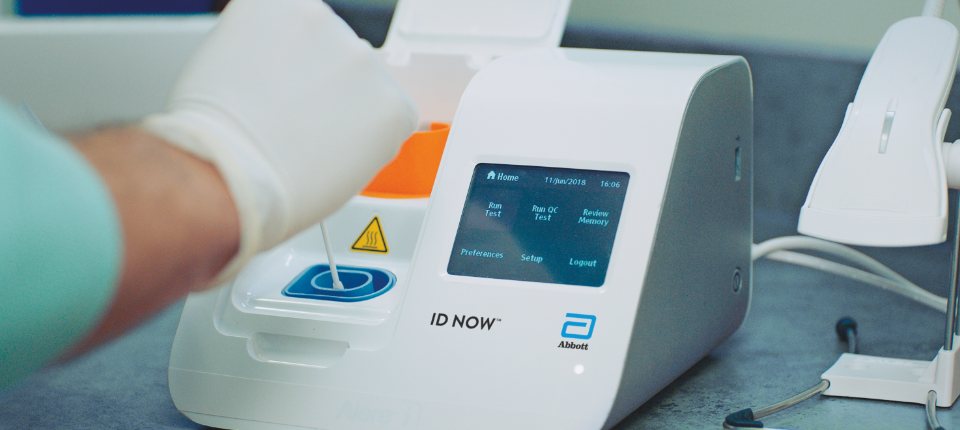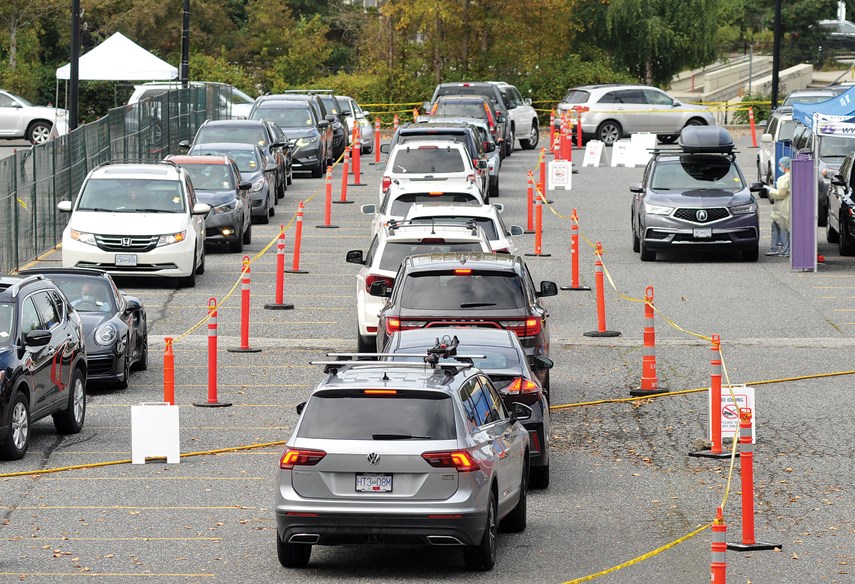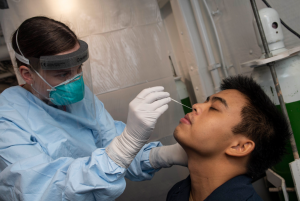THE PROBLEM
Every single one of us can help control the spread of the COVID-19 pandemic. Whether we’re humming “Happy Birthday” twice every time we wash our hands, or facetiming our friends instead of meeting up, we can all adopt changes that will help us get back to our normal lives sooner. Another thing we can do is to get tested, should we suspect COVID-19 infection.
 When to get tested for COVID-19
When to get tested for COVID-19
Credit: BC Centre for Disease Control, www.bccdc.ca
Getting tested is easier said than done. It’s an inconvenient drive-in, followed by a period of self-isolation until results come back, which can take up to four days.
Besides just being tedious, this lengthy processing time has other concerns. A study found that patients infected with COVID-19 are most infectious within the first five days of initial symptoms. If results aren’t coming back soon after testing, they become less effective at stopping the virus right in its tracks.
THE SOLUTION
This is where Abbott Laboratories steps up! Having already developed reliable testing tools for influenzas A&B, strep A, and respiratory syncytial virus, it was only a matter of time before COVID-19 testing apparatuses were developed. In early 2020, Abbott developed the ID Now COVID-19 Rapid Nucleic Acid Amplification Test, and launched for distribution in the US after receiving approval for emergency use from the FDA that year in March. Shortly after, Health Canada provided approval of use in October 2020.
 Abbott’s ID Now COVID-19 Test
Abbott’s ID Now COVID-19 Test
Credit: abbot.com
This Rapid Nucleic Acid Amplification Test takes nasal swabs from individuals, and amplifies the viral ribonucleic acid (essentially a COVID-19 nametag) hundreds of millions of times until it’s detectable by their system. What’s more, this impressive amplification process is done is a matter of minutes, and test results are returned within 13 minutes – hence the term rapid! The entire process is summarized in this short video from Abbott.
How ID Now COVID-19 Works
Credit: Abbott, www.youtube.com
It’s normal to have some doubt when the current gold standard testing protocol in Canada (RT-PCR) takes 6–8 hours.
Abbot’s clinical trial on 1003 subjects reported a similar accuracy using their ID Now machine compared to current lab PCR testing. This study was done in a controlled clinical setting, so these results are not representative of the real world.
Dr. Gary Procop, a director of virology at the Cleveland Clinic, found that ID Now missed up to 15% of COVID-19 cases in infected patients, that other tests were able to catch! He states that “just because we need something put out emergently, doesn’t mean we should put out something that doesn’t work appropriately.” In a response, the FDA stated that they will continue to track these tests and take action if necessary. Check out more of the interview below.
 Questions About Accuracy of Coronavirus Tests
Questions About Accuracy of Coronavirus Tests
Credit: CNN, www.cnn.com
This is Abbott’s response to the ‘rapidly’ changing world. They have provided frontline workers with rapid testing, but whether or not they can combat COVID-19 as quickly as their tests do remains a question.
~William Lee


 A Typical Nasal Swab
A Typical Nasal Swab